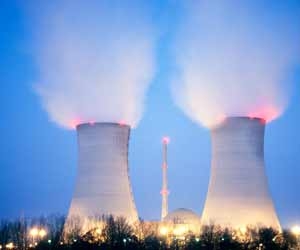Power Plant Operator Jobs
Management Sector
Power plant operators manage general operations at power plants, including wind, hydroelectric and nuclear power plants.

The power plant operators control the machinery that generates electricity in a power plant, be it a nuclear reactor or wind turbine. Depending on the type of facility where a power plant operator is employed, he may be in charge of monitoring and controlling a range of machinery including generators, turbines, boilers and more. Operators are also responsible for filling out reports or general maintenance rounds made during their shifts, as well as detailing any unusual incidents occur or machinery malfunctions. Electricity is a 24/7 necessity and power plants must always be manned, so some power plant operators may have to work night shifts at some point in their career.
Educational and Training Requirements
Power plant operators are generally required to have a combination of educational experience plus on-the-job training. A minimum of a high school degree is required for an entry-level power plant operator position. In general a college degree will allow for more advancement opportunities, especially in nuclear power plants; a bachelor’s in engineering or the physical sciences is preferable. Most senior operators hold some sort of bachelor’s degree. Individuals who are selected for training as power plant operators are given several years of classroom and on-the-job training.
Most power plants also give their operators periodic refresher courses to ensure that they are up-to-date on all general technical and safety protocol.
Nuclear power plants generally have much stricter regulations for power plant operators. Individuals hoping to become nuclear reactor operators must have at least three years of work experience at a power plant. They must then undergo extensive training of at least one year, which can include on-the-job training, classroom instruction and simulator practice. The next step is to write the Nuclear Regulatory Commission (NRC) examination for nuclear reactor operators. This license must be maintained by taking an annual exam.
Salary and Advancement Opportunities
Job prospects within the field of power plant operations are expected to be good, as many workers are expected to retire and additional power plants will be built. Opportunities for advancement are possible but because different power plants have different operating systems, it is easiest to advance within a single power plant; switching workplaces may hinder advancement opportunities. According to the Bureau of Labor Statistics power plant operators as a group, excluding nuclear plant operators, earn an average annual salary of $58,340. Nuclear reactor operators earn significantly more, with an average annual salary of $73,510. This disparity is most likely due to the more stringent training and licensing requirements which nuclear reactor operators must meet.
Payscale.com reveals similar results when comparing the wages of general power plant operators and nuclear reactor operators. According to Payscale.com, a power plant operator (excluding nuclear reactor operators) with one to four years of experience earns an average of hourly wage of $21.91 to $29.84, while an operator with 10 to 19 years of experience earns an average of $18.50 to $32.01. Wages for nuclear reactor operators on Payscale.com are salaried, with a nuclear reactor operator with one to four years of experience earning an average of $37,004 to $78,531 annually, increasing to an average of $64,157 to $93,271 with 10 to 19 years of experience.


 Teach English in Asia
Teach English in Asia  Cruise Ship Jobs
Cruise Ship Jobs  Alaska Fishing Industry Jobs
Alaska Fishing Industry Jobs  Sharing Economy / Gig Economy
Sharing Economy / Gig Economy